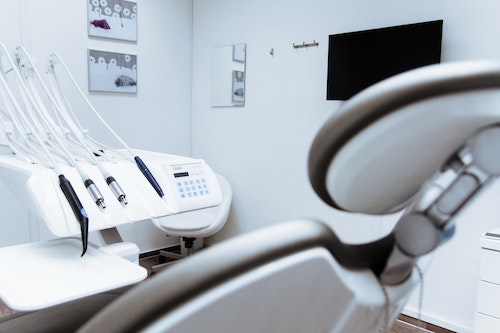
European Health Systems: An Evaluation of Preparedness and Response
The COVID-19 pandemic has posed unprecedented challenges for health systems worldwide. European health systems, in particular, have been put to the test in terms of their preparedness and response to this global crisis. In this blog post, we will assess the strengths and weaknesses of European health systems, share insights for health professionals and policymakers, and provide guidance for concerned citizens.
Introduction
The outbreak of COVID-19 caught nations by surprise, requiring quick and effective responses to mitigate its spread and minimize the impact on healthcare systems. While European health systems are renowned for their quality and accessibility, the pandemic has exposed vulnerabilities that must be addressed for future preparedness.
Preparedness: Strengths and Challenges
One of the strengths of European health systems was the existence of robust healthcare infrastructure, well-trained healthcare professionals, and access to essential medical supplies. However, the outbreak revealed a number of challenges that impeded the effective response to the crisis.
A key challenge was the lack of sufficient surge capacity within healthcare systems. As the number of cases soared, hospitals faced overcrowding and shortages of beds, equipment, and personnel. This highlighted the need for increased investment in healthcare infrastructure to ensure adequate resources during emergencies.
Additionally, the lack of preparedness for a pandemic of this scale exposed weaknesses in coordination and communication among European countries. The decentralized nature of many European health systems made it difficult to implement unified strategies and share critical information. Improved collaboration and information sharing frameworks within and between countries will be crucial in future preparedness efforts.
Response: Lessons Learned
European health systems quickly adapted and implemented various measures to mitigate the spread of COVID-19 and provide necessary care to patients. These measures included increased testing capacity, implementation of lockdowns and physical distancing measures, expansion of telemedicine services, and the establishment of dedicated COVID-19 treatment centers.
In addition to these immediate responses, the pandemic has also highlighted the importance of investing in public health and preventive measures. Health systems should prioritize early detection and surveillance capabilities to promptly identify outbreaks and contain them before they escalate. Strengthening public health infrastructure will enable more effective responses to future health crises.
Furthermore, the pandemic underscored the need for a robust supply chain and strategic stockpiling of essential medical supplies. A coordinated European approach to procurement and distribution of vital equipment and medications will ensure timely availability during emergencies.
Guidance for Health Professionals and Policymakers
Health professionals and policymakers play a vital role in shaping the preparedness and response of European health systems. Based on our evaluation, we provide the following guidance:
- Invest in healthcare infrastructure: Allocate resources to expand healthcare capacity, including the development of specialized treatment centers and surge capacity planning.
- Enhance coordination and communication: Establish efficient communication channels and information-sharing frameworks within and between countries to facilitate unified responses to future health crises.
- Strengthen public health infrastructure: Prioritize investments in early detection, surveillance, and preventive measures to contain outbreaks at an early stage.
- Promote telemedicine: Expand telemedicine services to ensure uninterrupted healthcare delivery during emergencies and reduce unnecessary strain on hospitals.
Guidance for Concerned Citizens
While health professionals and policymakers bear the primary responsibility for preparedness and response, concerned citizens can also contribute to the resilience of European health systems. Here are a few ways individuals can make a difference:
- Follow public health guidelines: Adhere to recommended preventive measures such as wearing masks, practicing physical distancing, and getting vaccinated to reduce the burden on healthcare systems.
- Support public health campaigns: Promote public health campaigns and initiatives to increase awareness and encourage adherence to preventive measures within your community.
- Stay informed and be prepared: Stay updated on the latest guidelines and developments from reliable sources and take necessary steps to ensure personal and family preparedness during health emergencies.
Conclusion
The COVID-19 pandemic has shed light on both the strengths and weaknesses of European health systems. While the pandemic exposed challenges in preparedness, it also provided insights to guide future improvements. By investing in healthcare infrastructure, enhancing coordination and communication, and strengthening public health, European health systems can better prepare for and respond to future crises. Equally important is the role of concerned citizens in supporting these efforts and adapting to the evolving situation. Through collective action and continuous improvement, we can build more resilient health systems for the benefit of all.



